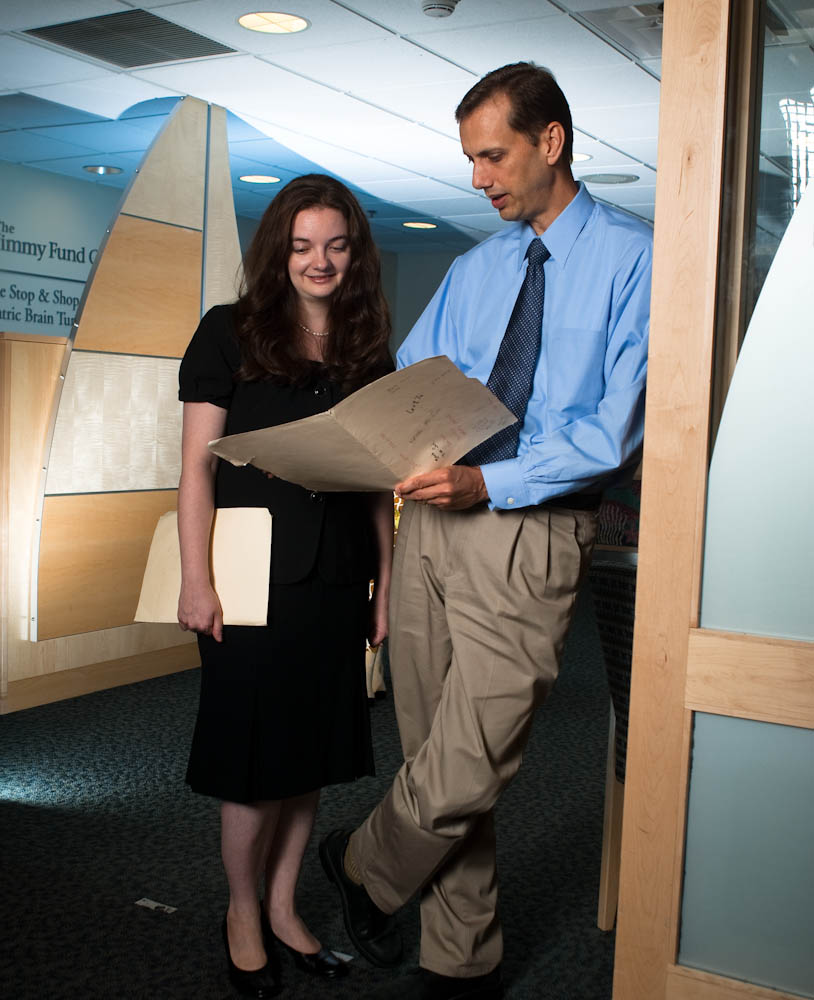During cancer treatment, patients are often focused on just one thing: getting healthy. But for survivors, particularly of childhood cancer, it’s also important to learn about staying healthy after treatment, including prevention of new cancers that may occur later in life.

We spoke with Lynda Vrooman, MD, associate medical director of the David B. Perini, Jr. Quality of Life Clinic at Dana-Farber/Boston Children’s Cancer and Blood Disorders Center:
Do childhood cancer survivors have an increased risk for developing a second cancer later in life (not just a recurrence)?
There are many factors that need to be taken into account when considering the risk for a childhood cancer survivor, but in general, survivors of childhood cancer are at higher risk for developing cancer later in life. A new, second cancer can be caused by a prior treatment exposure, such as radiation or specific types of chemotherapy. Other factors, such as when a survivor was treated, family history of cancer, the age of the survivor, or current habits like smoking, can also affect risk.
Are there certain cancers survivors are more at risk for?
Survivors may be at higher risk for certain cancers based on prior treatment exposures. Radiation treatment increases the risk of developing a second cancer in parts of the body exposed to the radiation. For example, there is an increased risk of developing skin cancer in skin that was exposed, and exposure to the chest has been shown to increase the risk for breast cancer in women. Some chemotherapy treatments also increase risk of developing leukemia in initial years after treatment. Survivors should discuss their particular treatment history with their providers to understand their risk
Do certain childhood cancers lead to a higher risk of a second cancer later in life?
Childhood cancer survivors treated with high doses of radiation are at higher risk for second cancers. Some survivors may also have a higher risk based on their genetic predisposition. A genetic cancer predisposition may be suspected in certain rare childhood tumors, such as retinoblastoma when cancer occurs in both eyes. A family history of cancer may also indicate there are inherited mutations that could put a survivor at risk for second cancer.
It is important for patients to discuss with their provider any family history of cancer as well as concerns about genetic risk.
What should childhood cancer survivors know for follow-up care (after treatment)?
It is important for survivors to understand the treatments they received so they can have informed conversations with their providers and create the best plan for screening. Patients should bring a summary of treatment to any new physician. This should include details about chemotherapy, radiation, and/or surgery. For example, based on a history of radiation to the chest, a doctor may recommend earlier screening with mammograms or other imaging tests.
Read more:
Childhood cancer survivors should also have cancer screenings appropriate for anyone of their sex or age group. It’s important for physicians ordering any screening tests to know the details of a survivor’s treatment history.
A comprehensive, annual health check-up is very important for childhood cancer survivors. Survivors should report any new, unusual, or continued symptoms such as persistent, unexplained pain, lumps, or skin changes in the area where they received radiation.
What else can childhood cancer survivors do to prevent cancer later in life?
Survivors should follow basic cancer prevention strategies such as using sunscreen and other sun safety practices as well as not smoking or using tobacco products. Those who do smoke should discuss smoking cessation strategies with their doctors. We also recommend survivors stay physically active and discuss nutrition and exercise recommendations with their doctor.
The hepatitis B and HPV vaccines can protect against viruses that cause some cancers and we recommend survivors review with their doctors whether these vaccines are appropriate for them.
If you are a childhood cancer survivor and have questions about your risk of developing a second cancer or long-term health issues, please discuss these concerns with your health care provider. The David B. Perini, Jr. Quality of Life Clinic offers care and services for survivors of childhood cancer and can help create a survivorship plan tailored to a patient’s particular medical history.
